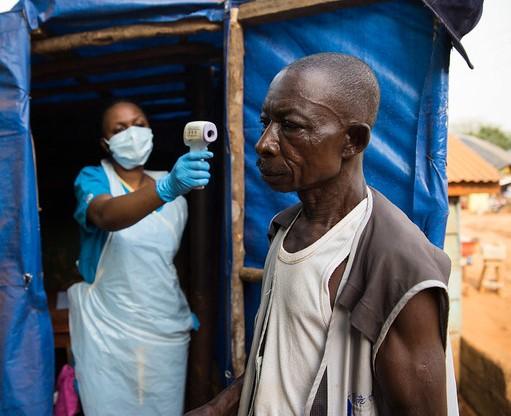Threats of death and more violence in the Democratic Republic of the Congo (DRC) Ebola outbreak region kept the response on shaky security ground, with nurses threatening to strike if government officials don't take action and some health facilities closing as health workers flee the deteriorating conditions.
In other developments, the outbreak total grew by 11 cases today, reaching a total of 1,888, according to the World Health Organization (WHO) online Ebola dashboard. Health officials are still investigating 293 suspected Ebola cases, and the death toll stands at 1,248.
Officials address threats
In its daily update yesterday, the DRC's health ministry said nurses in Musienene health zone had a meeting yesterday to denounce death threats and destruction of health facilities over the past few days. The facilities were targeted over their participation in the Ebola response.
The nurses asked local authorities to take steps to tamp down the violent threats and said they will go on strike if the threats don't stop.
Also, the ministry said targeted violence in Beni and Lubero has led several doctors and nurses to move or temporarily leave their homes, forcing some health facilities to close their doors. It added that the worst area is Kyondo health zone, where Kyakumba Reference Health Center has been closed since May 21 owing to physician and nursing staff fearing for their safety.
Since Aug 1, 132 attacks against medical units have been reported, which has resulted in 38 injuries and 4 deaths in health workers and patients, the ministry said.
WHO highlights 7 hard-hit areas
The WHO's latest weekly overview of the outbreak yesterday said no major security incidents were reported in the past 7 days. However, outbreak workers, local health providers, and community members cooperating with the response have been increasingly subjected to threats—spelled out on leaflets or communicated directly—from armed groups present in epicenters such as Katwa and Butembo.
Also affected are smaller hot spots such as Lubero, Masereka, Mabalako, Kalunguta, and Vuhovi.
Regarding the continued steady rise in Ebola cases, the WHO said that over the past 3 weeks transmission is most intense in seven locations that have seen 93% of cases during that timeframe. They are Beni, Butembo, Kalunguta, Katwa, Mabalako, Mandima, and Musienene.
See also:
May 23 DRC statement
May 23 WHO update

















